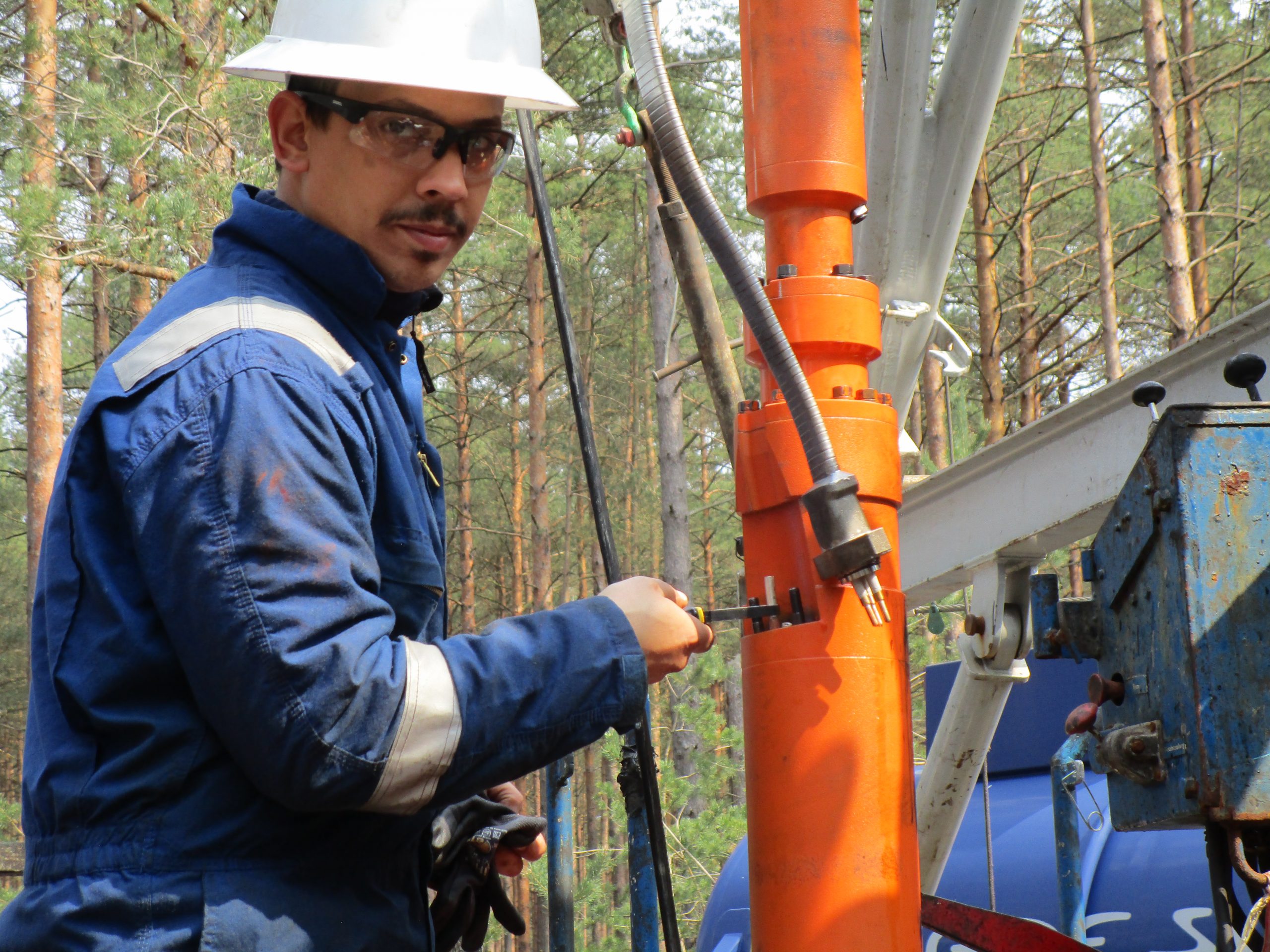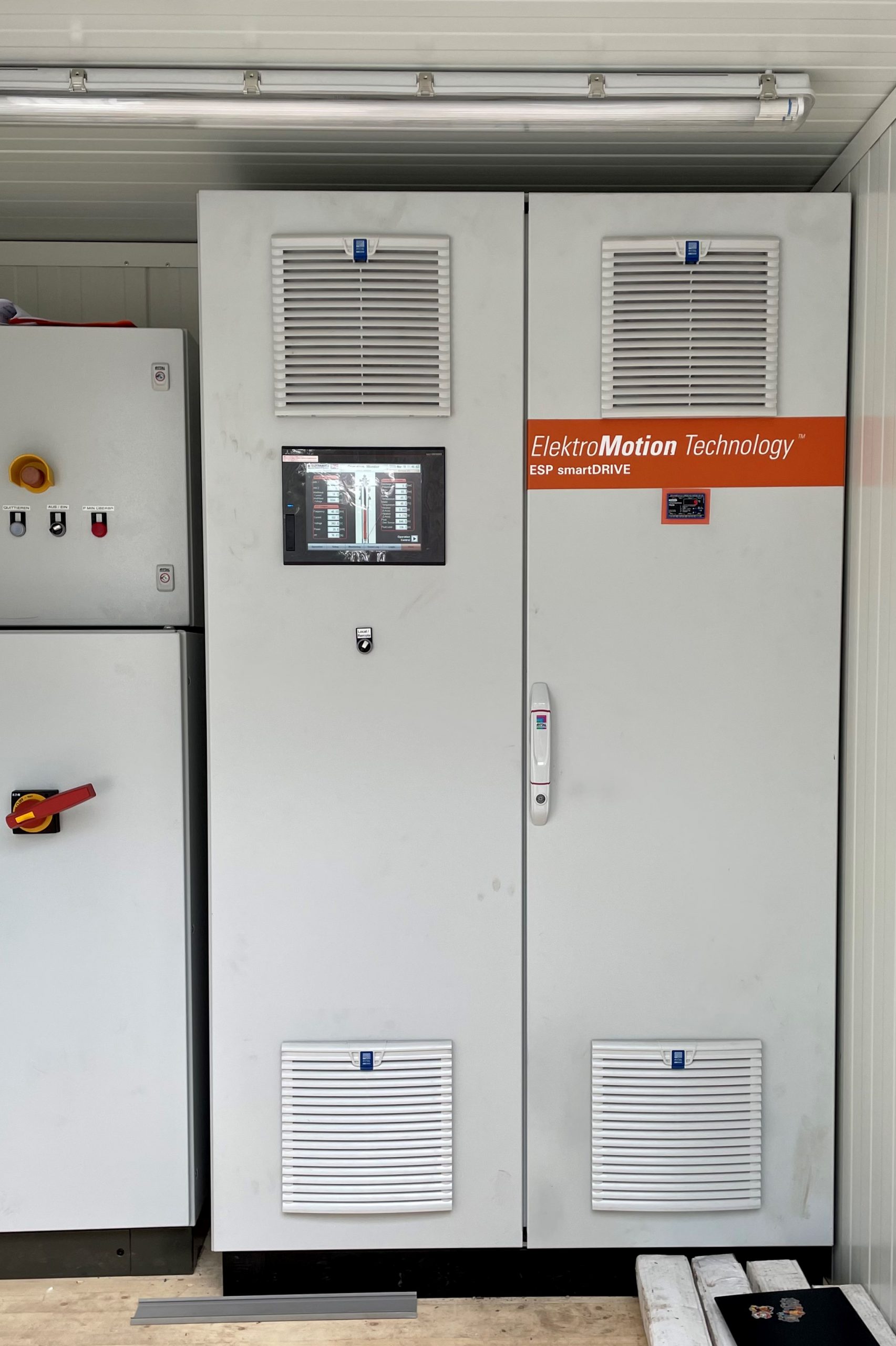Successful ESP-system installation by OIL DYNAMICS
Replacement and technology upgrade: OIL DYNAMICS just recently installed and started-up two new ESP-systems near Hannover, Germany.
The oilfield operator by last year decided to renew und upgrade his pumping equipment including ten production wells. Oil Dynamics convinced the customer with a sophisticated technical concept. Meanwhile the first two of ten wells are upgraded from Progressing Cavity Pumps (PCP) to Electric Submersible Pumps (ESP) and running.
More efficient and safer: Comparing the same sizes ESPs can deliver higher flowrates and heads, are more energy efficient and longer lasting than PCPs. ESP installations have smaller footprints on surface and emit no noise. Unlike PCPs, an ESP does not need a drive shaft going through the wellhead nor mechanical seal, which makes ESP completions safer, not least for the environment.
Better production control and pump protection: Both ESP systems commissioned are equipped with pump sensors. Those downhole sensors constantly deliver important values to the surface such as downhole pressure, temperature, etc. When this information is properly processed, better reservoir management, production control and pump protection are guaranteed, among other things.
Strong, reliable, clean drives: To power and control the ESPs OIL DYNAMICS built and commissioned new Variable Frequency Drives (VFD). Built by OIL DYNAMICS from selected high-quality industrial components from global market leaders ElektroMotion smartDRIVEs are characterized by high reliability and durability. The delivered VFDs are equipped with DC-link chokes for the intermediate circuit and du/dt sinusoidal wave filters on the output side. These additional components improve the power quality on both sides of the VFD, extending the service life of the pump motor and neighboring electrical systems.
OIL DYNAMICS Field Service: The tailor-designed and 100%-tested equipment has been commissioned by Oil Dynamics’ factory-own Field Service which also established a data connection to the client’s control system.


